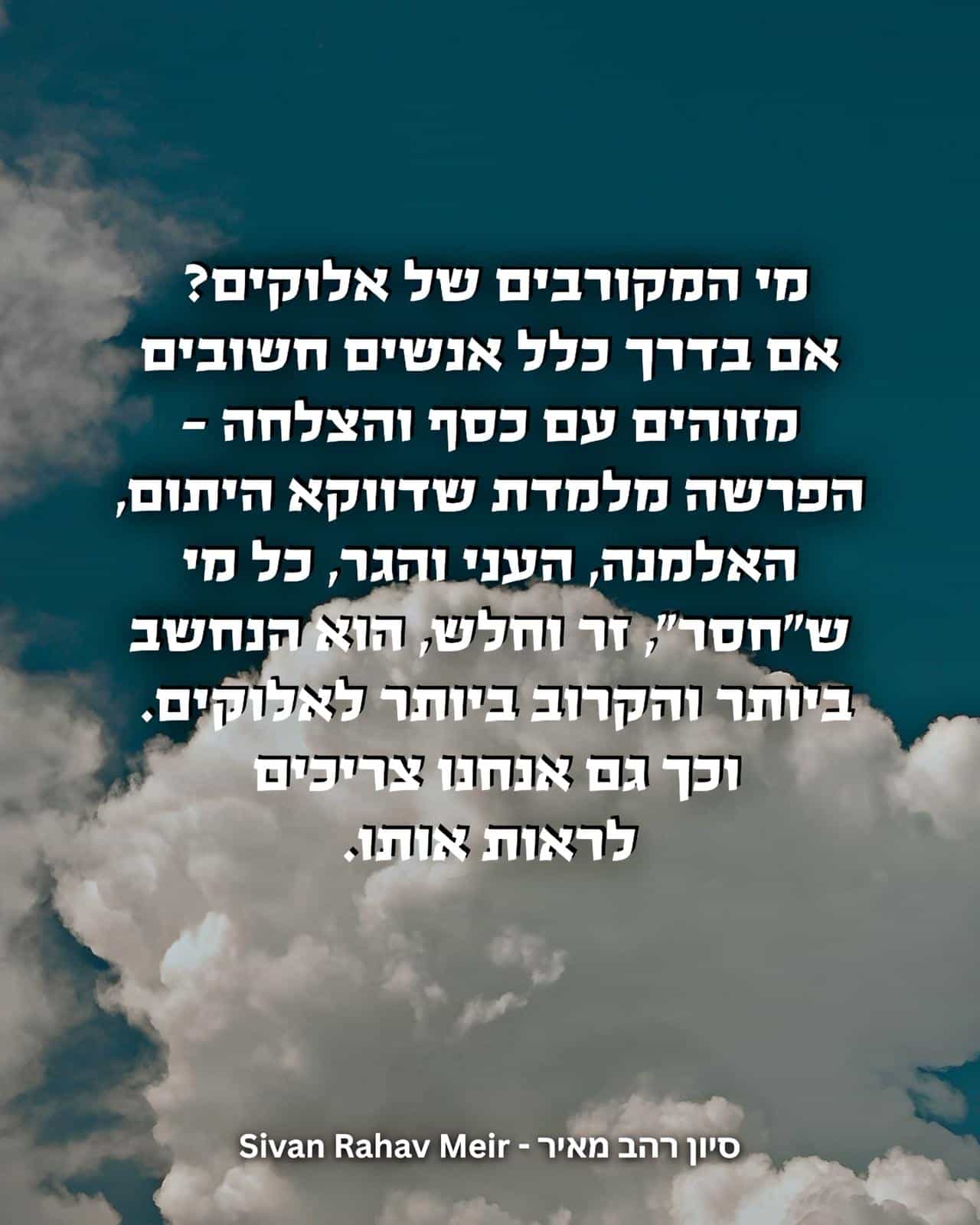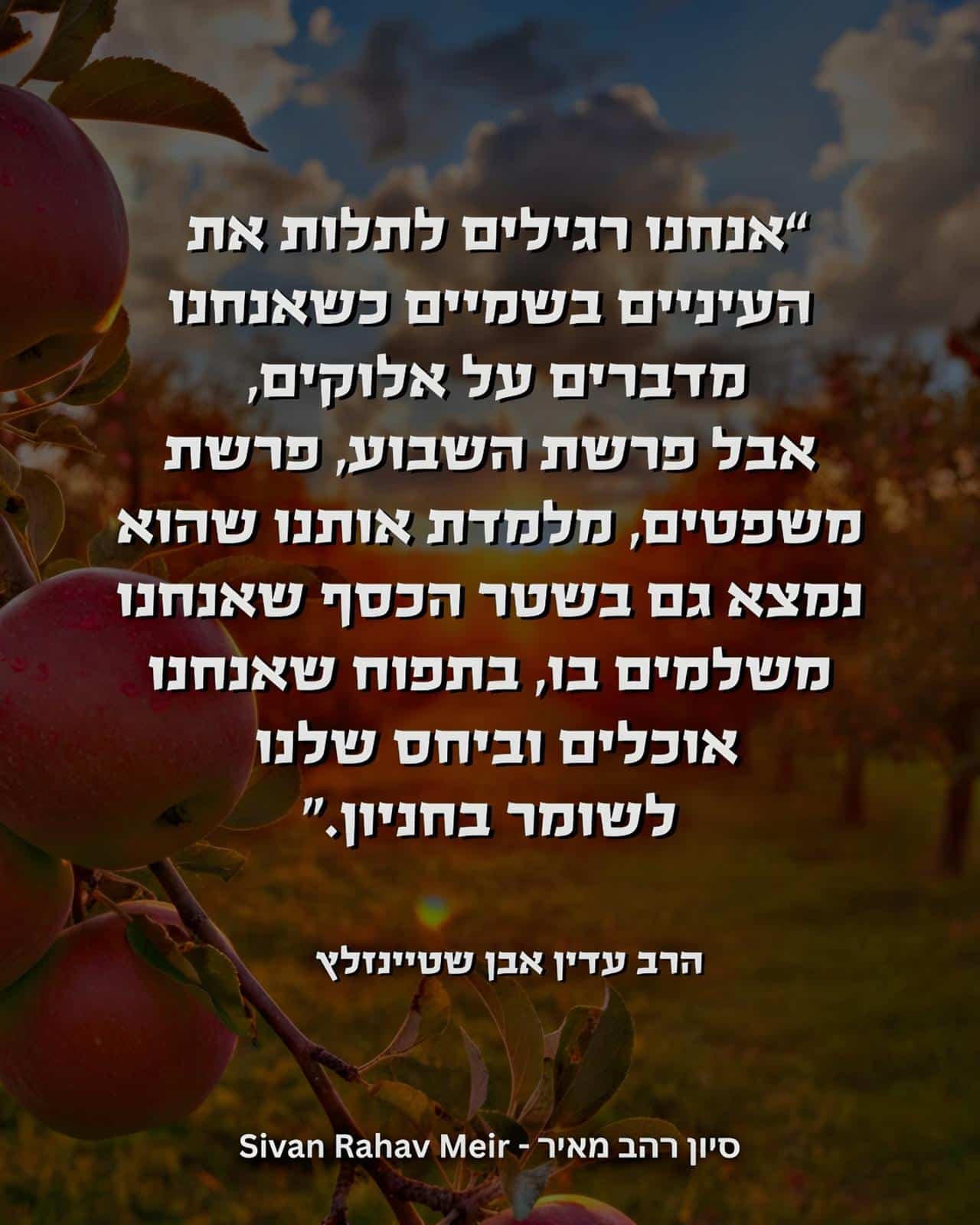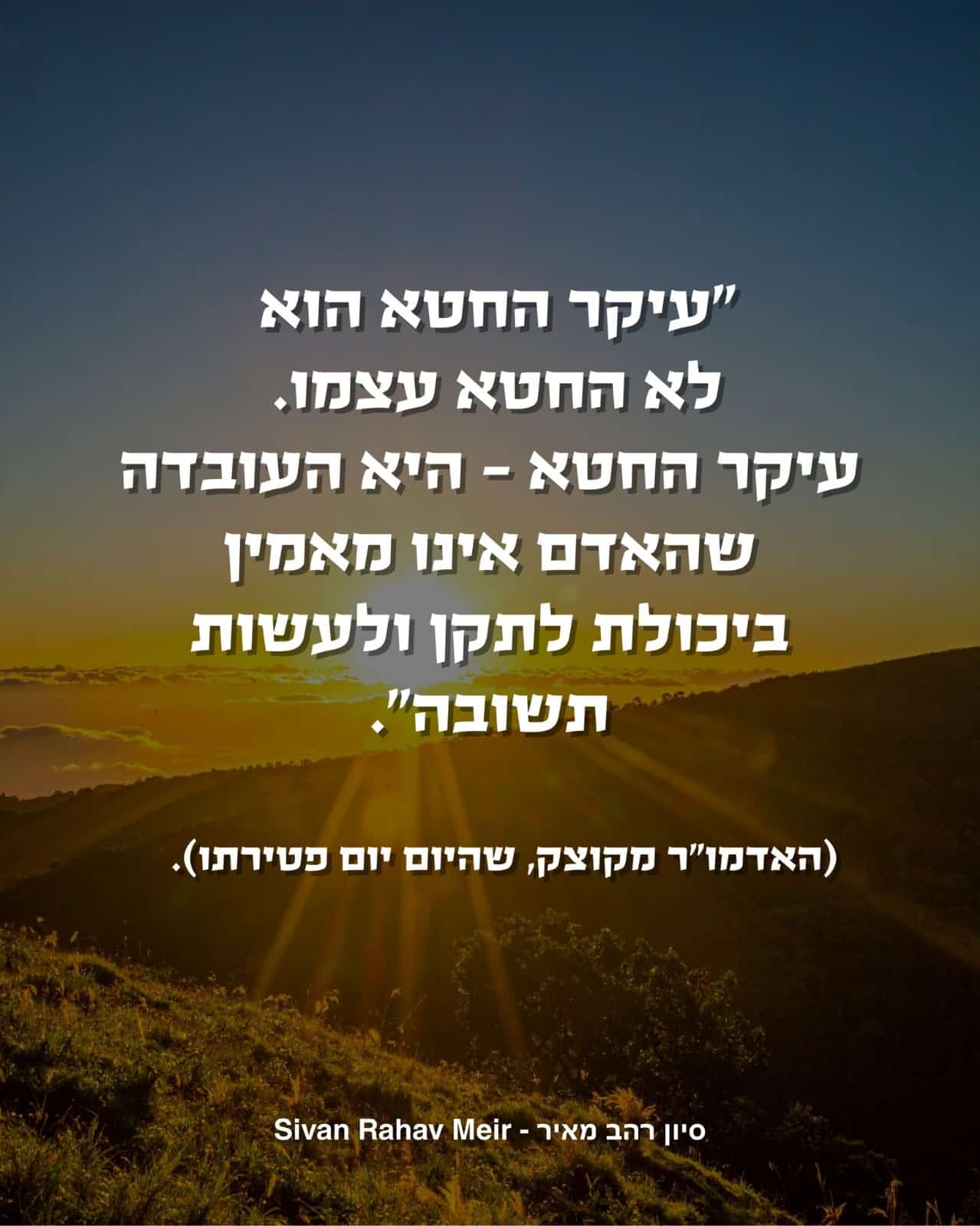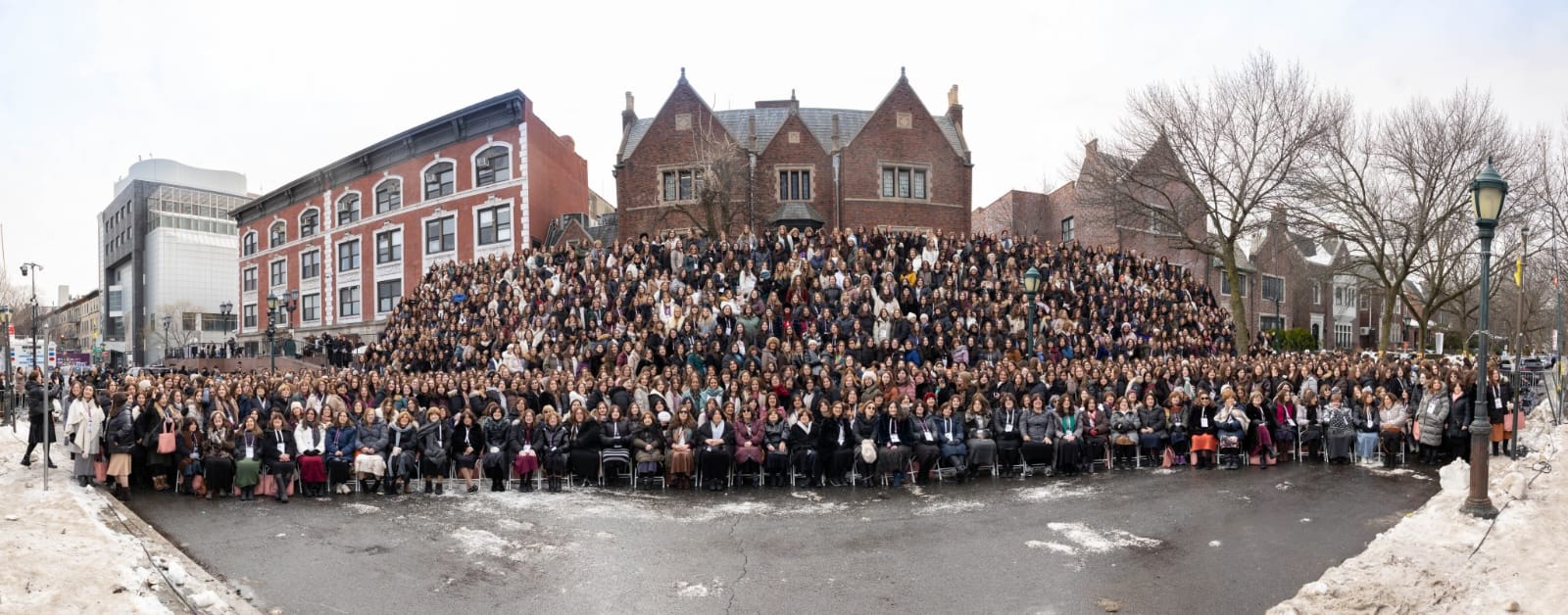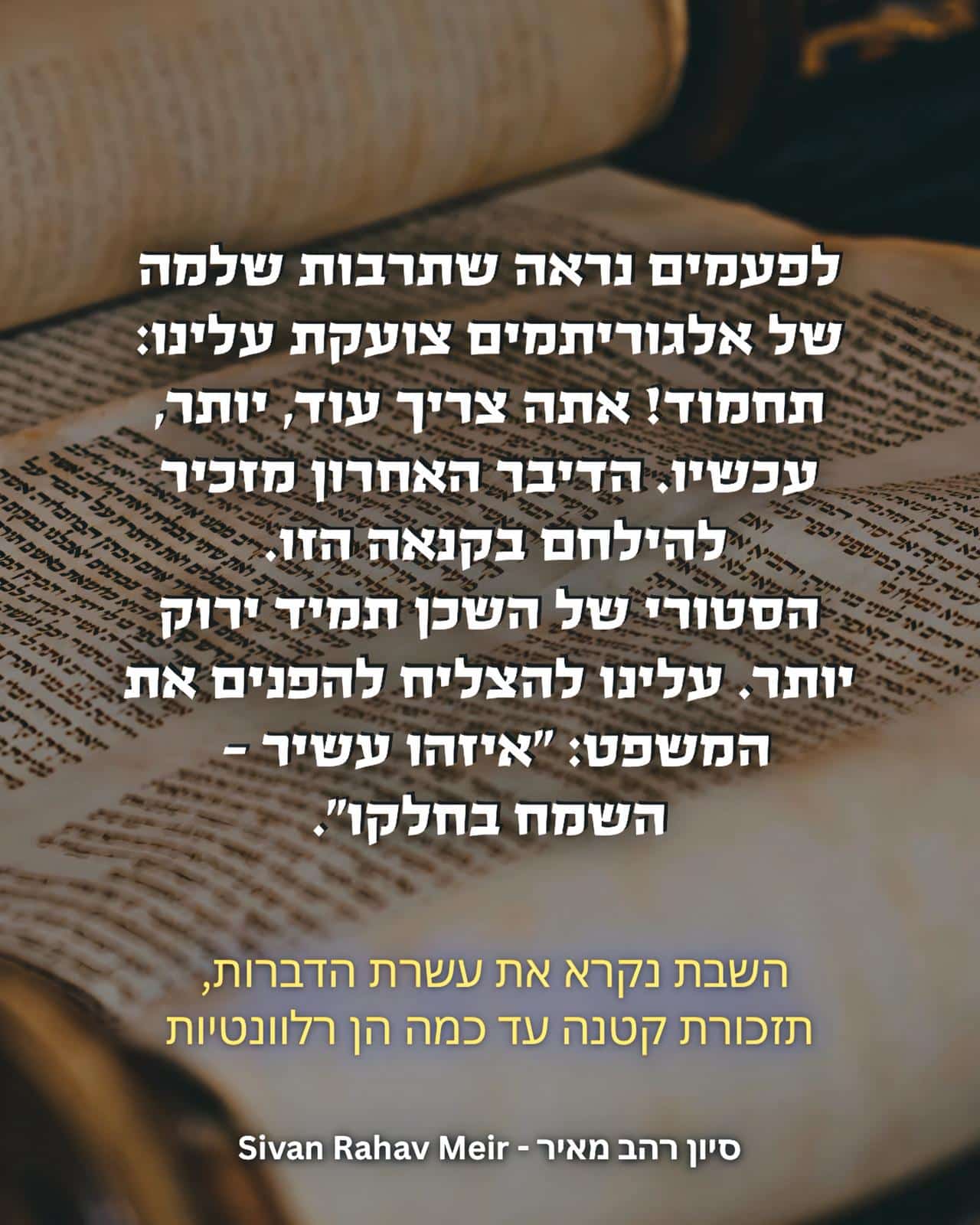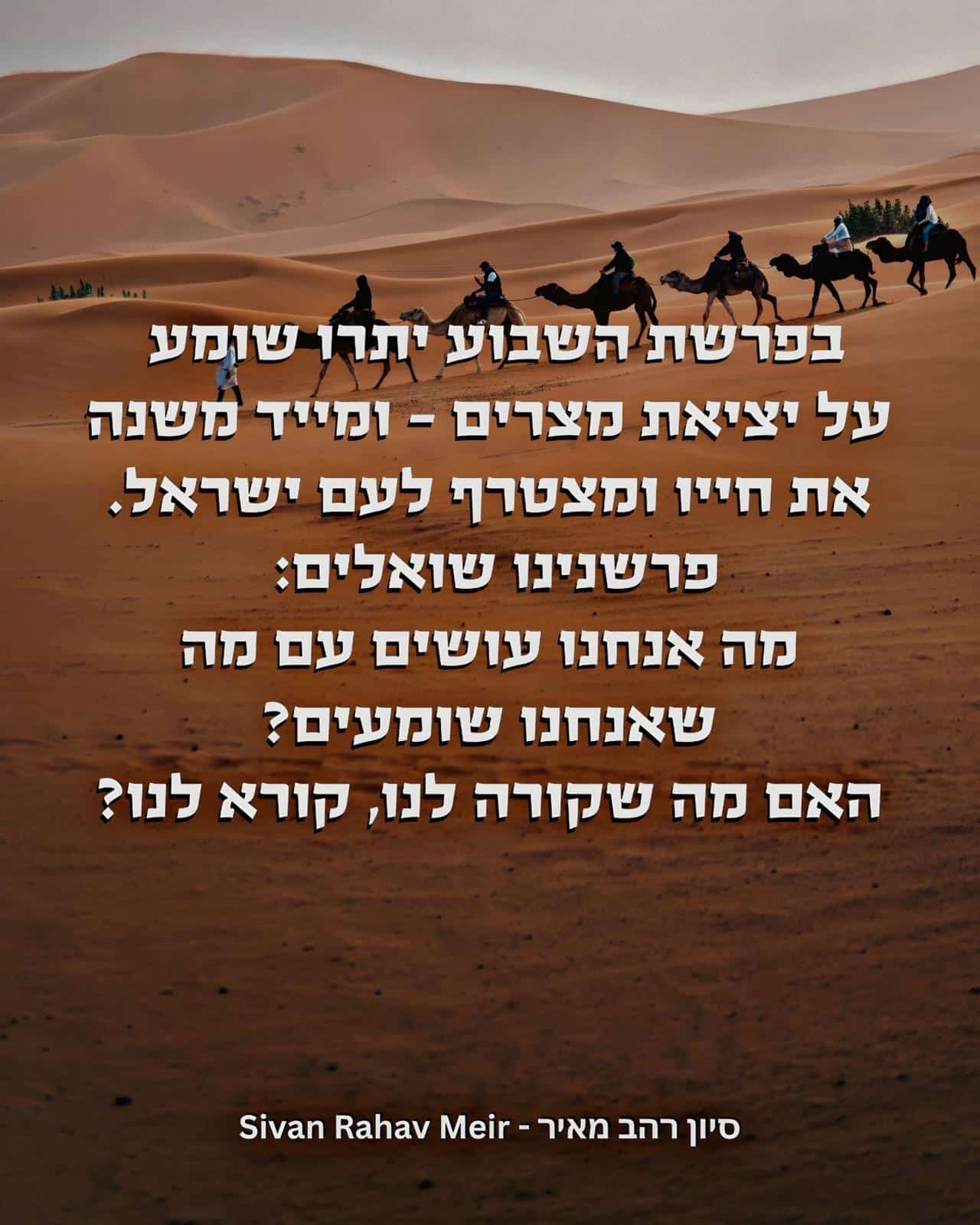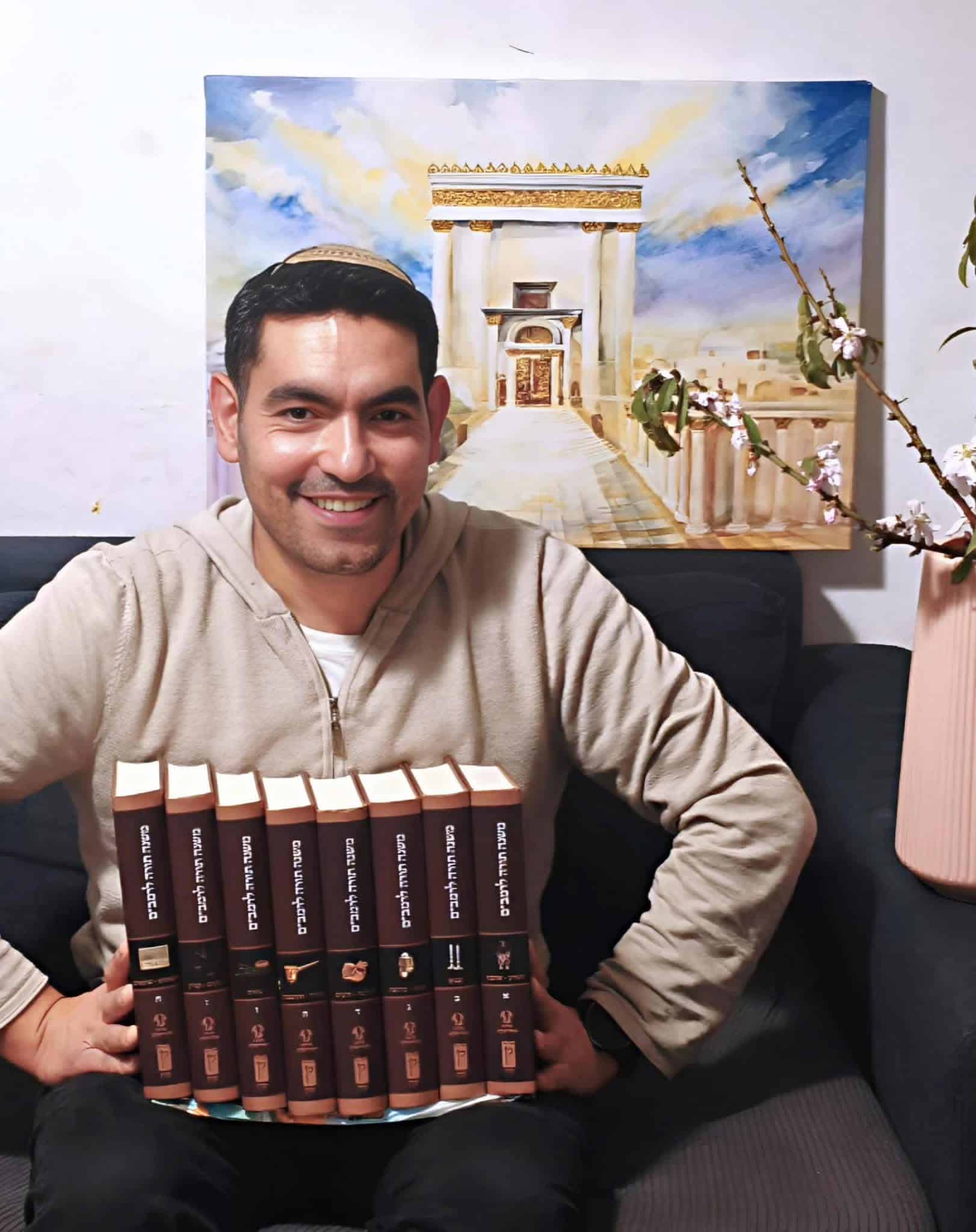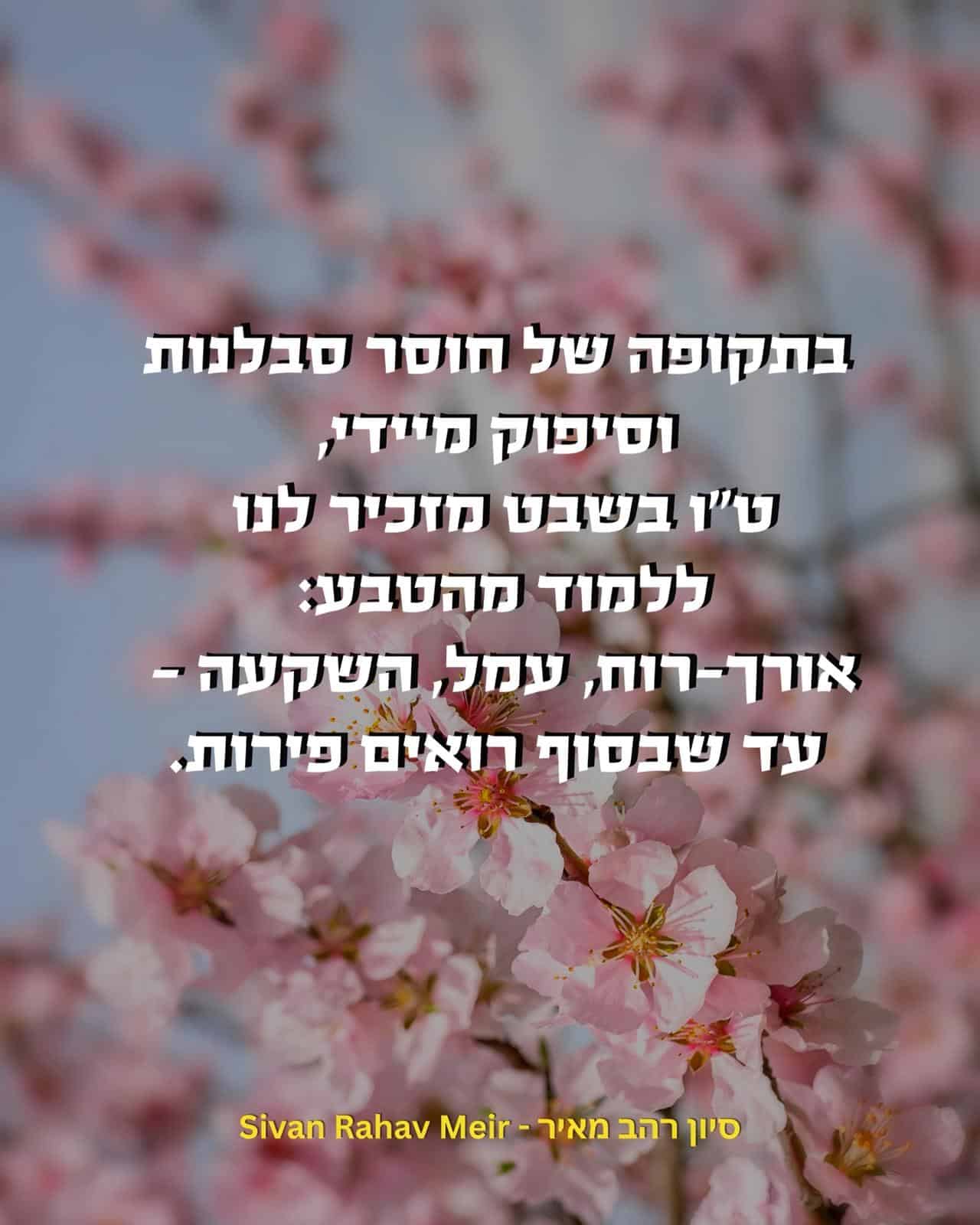Translation by Yehoshua Siskin
"I am about to speak in front of people gathered for a Hanukkah candle lighting ceremony and I have nothing to say," a friend wrote me this week. Here are a few suggestions I wrote in response:
On Hanukkah we take note of the fact that the Hasmoneans rebelled against the Greeks and triumphed. The Greeks did not want to kill us. They "only" demanded that we abide by decrees that violated our values. They would permit us to live, but not as Jews. What are our red lines today? Where will we always say "no" and at what point are we prepared to rebel against certain social and cultural norms that are unacceptable to us?
There is a custom for women not to do any work for the first thirty minutes, at least, during which the candles or oil lamps are burning. Yes, to put the cell phone aside and stop managing the world. To look at those around us, to talk, to eat, to play, to sing, to pray, to laugh, to be grateful for the light in our lives. It is a serious challenge throughout the holiday, especially in the middle of a work day filled with acitivity, to create such an island of tranquility. Are we capable of this?
Seder night comes in with a boom. And so does Yom Kippur. But Hanukkah comes in gradually. Each day we add a little more light, another bit of radiance. This is not just a technical matter but an approach to life. Our sages call this "mosif veholech" (always add more). Where in our lives are we always adding more light? Are we continually adding opportunities and increasing our potential for doing good, both as individuals and as a nation?
But, in the end, I wrote her that we really don't have to dig too deep. It's enough to abide by an old Chasidic saying: "We need to listen to what the Hanukkah lights are telling us." We can simply be silent, gaze at the flames, and listen to what they have to say.
And above all, have a happy Hanukkah!


